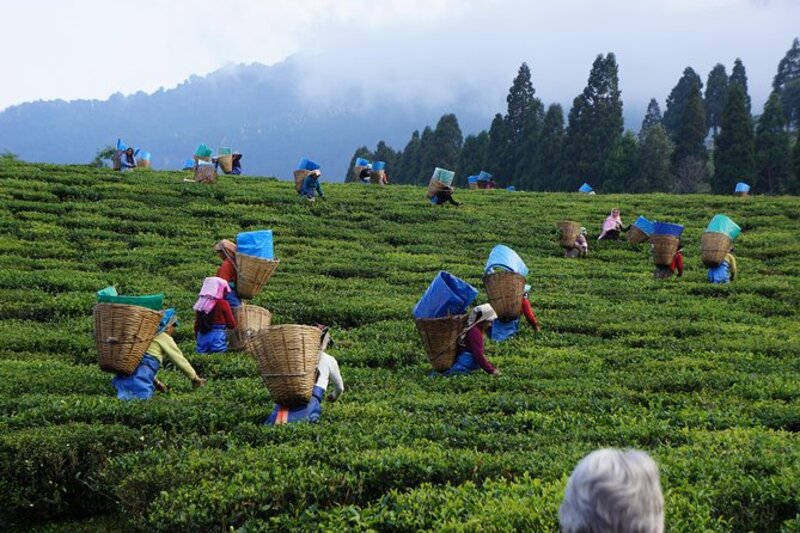The Ceylon tea industry, a symbol of national pride and a cornerstone of the economy, now faces an existential threat.
Observers suggest that the proposed 700 Rupee wage increase for tea estate workers is less about worker welfare and more about the government’s hidden agenda – selling the tea estates to Indian-backed companies. This move, they argue, jeopardizes both the welfare of workers and the nation’s economic sovereignty.
For over a century, Ceylon tea has been celebrated globally, a testament to the hard work and dedication of its tea estate workers. Yet, the government’s sudden push for a wage hike seems to be a strategic ploy rather than a genuine effort to improve worker livelihoods. Critics argue that this increase, though appearing generous, is a temporary fix that distracts from the government’s failure to implement long-term improvements in healthcare, education, and living conditions for the workers.
The timing of this proposal raises several red flags. With elections on the horizon, the government’s push for a wage increase appears to be a tactic to garner political favor rather than provide sustainable support for estate workers.
According to industry insiders, the financial strain of this wage hike on the 21+ plantation companies could lead to severe repercussions. Smaller and medium-sized estates, unable to cope with the sudden increase in labor costs, may be forced to sell off their operations. This creates an opportunity for foreign investors, particularly Indian-backed companies, to acquire these struggling estates.
The potential sale of tea estates to foreign interests poses a significant threat to Sri Lanka’s national sovereignty. The tea industry is not just an economic asset; it is a cultural heritage cultivated through generations of Sri Lankan toil and expertise. Allowing foreign entities to dominate this sector risks losing not only economic benefits but also the rich traditions and practices that make Ceylon tea unique.
Observers note that the government should be safeguarding its industries and workers from foreign exploitation, not creating pathways for it. The focus should be on strengthening local businesses, investing in sustainable agricultural practices, and ensuring that any wage increases are part of a comprehensive plan to genuinely improve the lives of tea estate workers. True support for these workers involves more than a nominal wage increase; it requires a commitment to long-term development and protection from exploitative foreign interests.
The proposed 700 Rupee wage hike for tea estate workers is perceived by many as a Trojan horse, masking the government’s true intentions of selling off prized tea estates to foreign companies. This move threatens the national heritage, economic stability, and sovereignty of Sri Lanka. It is imperative for the nation to stand firm and ensure that tea estates remain in the hands of Sri Lankans, for the benefit of workers and the preservation of the country’s economy and heritage.
With many plantation companies already making losses, it is only feasible that they handover the estates back to the government, allowing government to present to favoured foreign investors. Sources say such entities are already in town, shopping for the prized jewels of Ceylon.





















